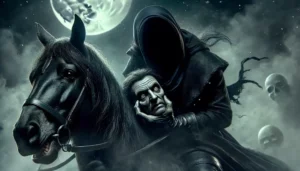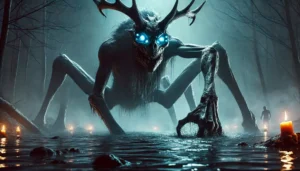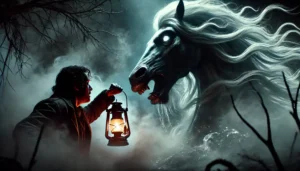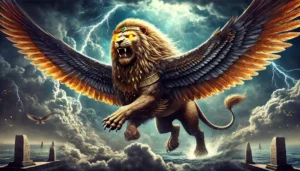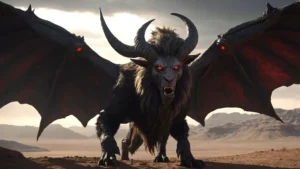Greek mythology isn’t just a collection of old stories, it’s the heart of ancient Greek culture, where gods, heroes, and monsters collide. These myths aren’t just about epic battles; they reveal the Greeks’ views on life, power, and destiny.
Identify key gods like Zeus, Athena, and Poseidon.
From tales of courageous heroes to warnings against hubris, Greek mythology dives into what it means to be human, powerful, and flawed.
Gods like Zeus, Athena, and Poseidon controlled nature and fate, each embodying unique powers and personalities. Mortals, in turn, had to navigate these divine influences, often facing impossible choices.
Greek myths didn’t just entertain; they taught lessons about bravery, loyalty, and the consequences of human ambition.

Whether it’s the brutal Hydra, the wise Athena, or the clever Odysseus, each figure plays a role in showing us the ancient Greek perspective on the world’s mysteries and challenges.
Origins and Influences
Greek mythology wasn’t born in isolation. Ancient Greece was a melting pot of ideas, with myths shaped by influences from neighboring cultures like Egypt, Mesopotamia, and the Near East.
This cultural exchange brought in new themes, symbols, and ideas, enriching Greek mythology with layers of meaning and complexity.
The Egyptians, for instance, had a pantheon that influenced the Greeks’ concept of gods with distinct personalities and powers. Just as Ra was the sun god in Egypt, the Greeks saw Helios guiding the sun’s daily journey across the sky.
Meanwhile, Mesopotamian legends, like the epic of Gilgamesh, introduced themes of heroism, mortality, and the struggle against nature.
“Helios rides across the heavens in a blazing chariot.” – Homeric Hymn to Helios
Through these exchanges, the Greeks crafted myths that felt both local and universal. Their mythology became a mirror, reflecting both their unique culture and shared stories of the ancient world.
The mix of influences helped Greek mythology grow into a vast, interconnected web of gods, heroes, and epic tales, making it a cultural force that endures today.
The Pantheon of Greek Gods
The Greek pantheon is a family of gods with powers, rivalries, and personalities that dominate the myths of ancient Greece.
Zeus
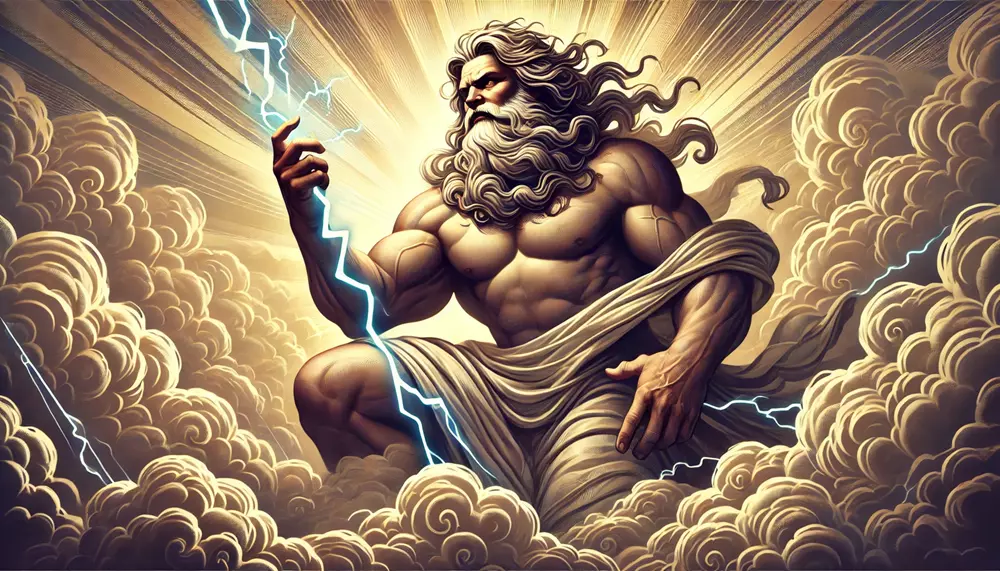
the king of the gods. Often depicted with a thunderbolt in hand, Zeus rules over Mount Olympus, making decisions that affect gods and mortals alike.
Known for his justice but also for his unpredictable temper, he embodies both protection and power. Zeus’s many affairs also create conflict, introducing half-god heroes like Heracles into Greek mythology.
Hera
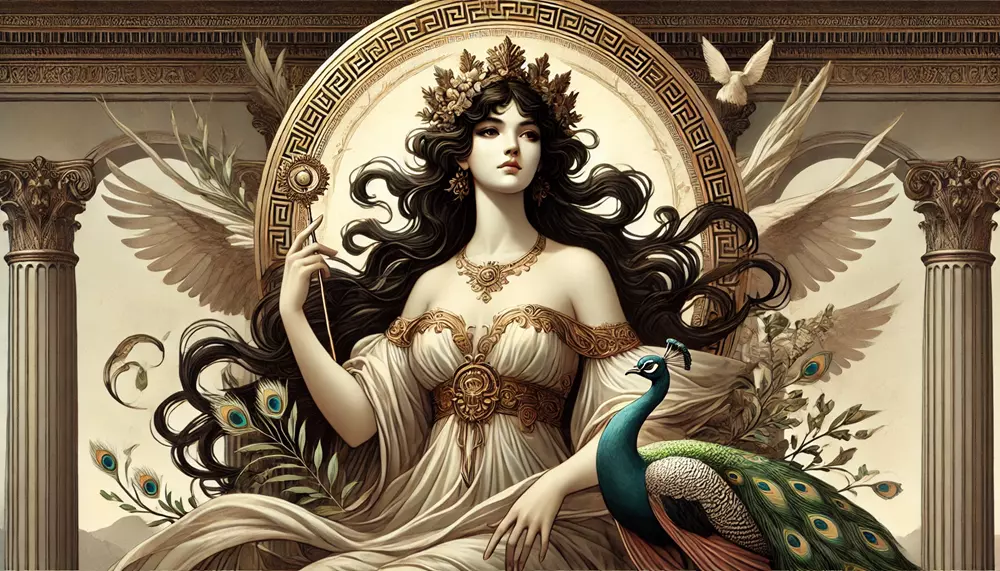
Zeus’s wife, is the goddess of marriage and family. Her loyalty to Zeus is ironic given his many infidelities, leading her to exact revenge on his lovers and illegitimate children.
Hera is often portrayed as fierce, cunning, and determined to protect her role as queen of the gods. This tension makes Hera one of the most complex figures in Greek myths, torn between loyalty and vengeance.
Poseidon
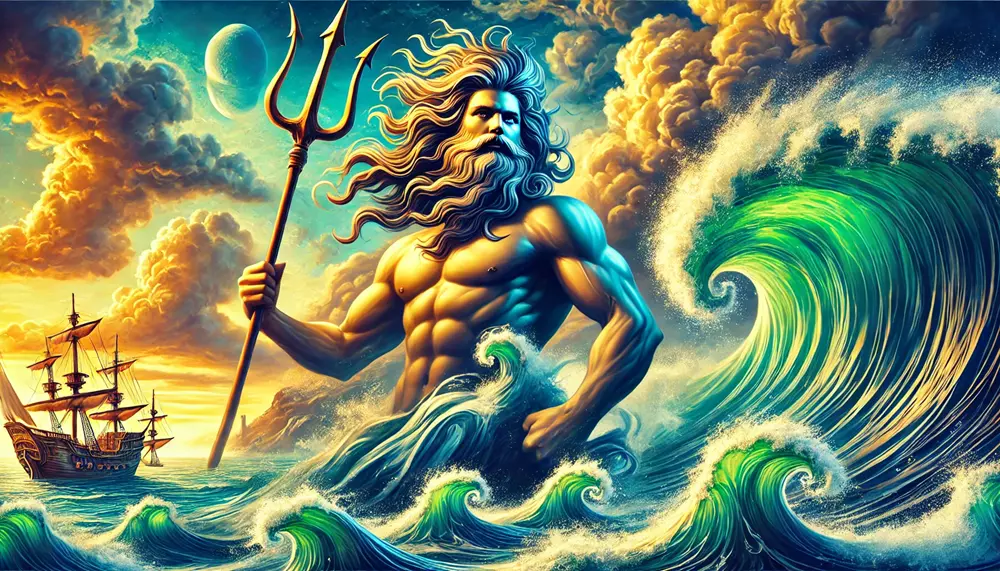
god of the sea, is another powerful figure. Known as “Earth-Shaker,” he wields a trident that can cause earthquakes and storms.
Poseidon’s moodiness reflects the unpredictable nature of the sea, and he often acts out of pride or anger. His rivalry with other gods, especially Athena, and his conflicts with mortals like Odysseus highlight the Greeks’ respect and fear for the ocean’s uncontrollable forces.
Athena
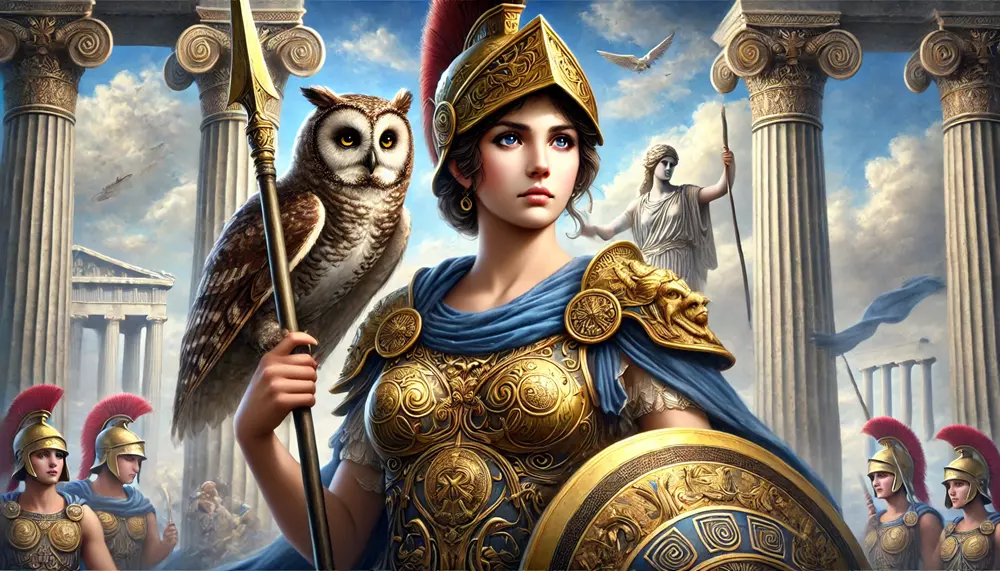
The goddess of wisdom and warfare, represents strategy and intellect. Unlike Ares, who revels in the bloodlust of war, Athena values skill and justice.
Born fully armored from Zeus’s forehead, she embodies rationality and guidance. She often appears as a mentor to heroes like Odysseus and Perseus, helping them achieve victory with her knowledge and cleverness.
Apollo

God of the sun, music, and prophecy, is a complex figure whose domains span many aspects of Greek life. As the bringer of light, he represents clarity and truth.
Apollo’s role as a prophet connects him to Delphi, where the Oracle shares his wisdom with those seeking guidance. Known for his beauty and skills in music, Apollo embodies harmony but also has a fierce side, capable of bringing plague upon his enemies.
Artemis

Apollo’s twin sister, the goddess of the hunt and wilderness. Independent and fierce, she protects young women and is known for her sharp skills with the bow.
She represents both the wildness of nature and the purity of chastity, rejecting marriage and choosing to remain free. As the protector of animals and wilderness, Artemis embodies the Greek admiration for the natural world.
Ares
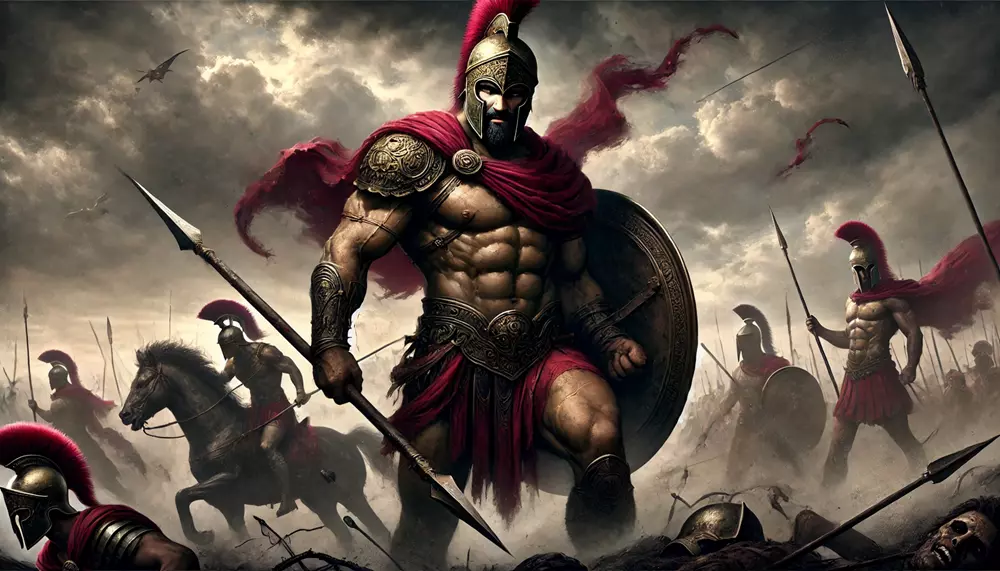
The god of war, contrasts sharply with his sister Athena. While Athena values strategy, Ares thrives in chaos and bloodshed.
Representing the brutal side of war, Ares is impulsive and feared by mortals and gods alike. His reckless nature often brings destruction, embodying the Greeks’ understanding of war as both honorable and horrific.
Aphrodite
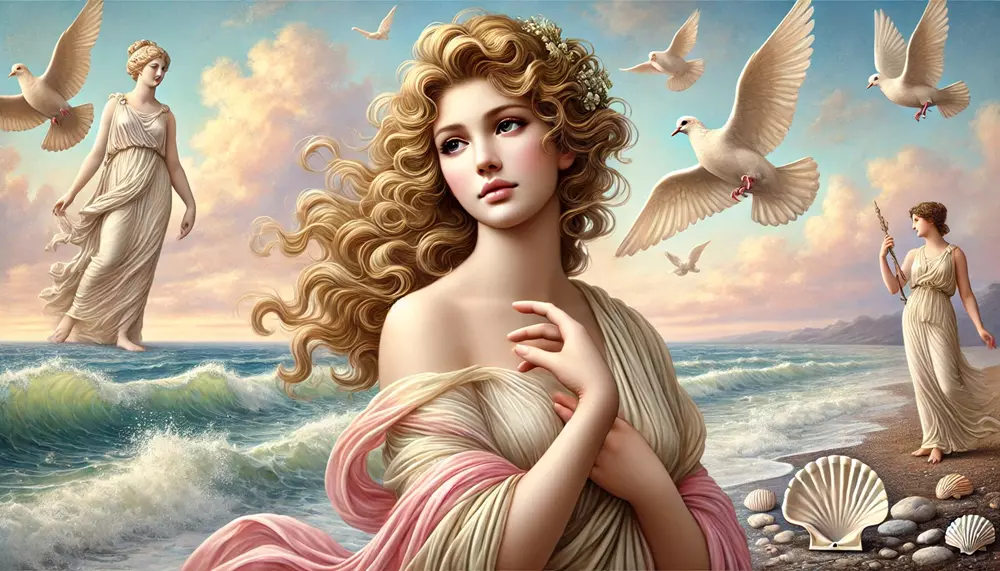
Goddess of love and beauty, holds sway over the hearts of gods and mortals. Known for her irresistible allure, she influences desire and passion.
Aphrodite’s stories often explore love’s power to unite but also its potential to disrupt, as seen in the Trojan War, which she indirectly sparked by promising Paris the love of Helen.
Hermes
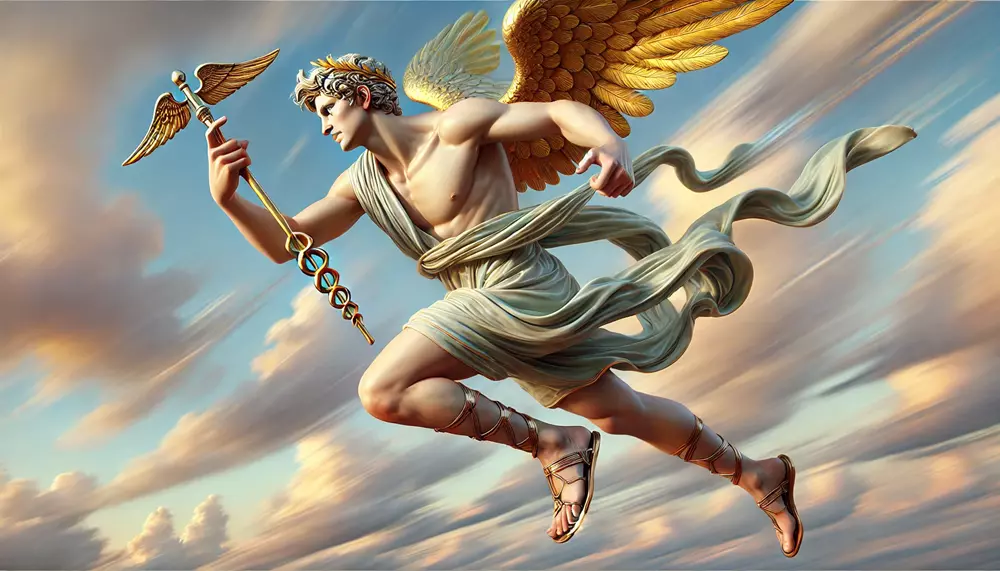
The messenger god, is known for his speed and wit. With his winged sandals, he travels between the worlds of gods and mortals, delivering messages and guiding souls to the underworld.
Hermes embodies communication, cleverness, and boundaries, making him a versatile figure who bridges different realms and represents the swift changes of fortune.
Demeter

Goddess of the harvest, presides over agriculture and fertility. Her story with her daughter Persephone explains the seasons, symbolizing life, death, and rebirth.
When Persephone is taken to the underworld, Demeter’s grief causes winter; her joy at Persephone’s return brings spring. This myth reflects the Greeks’ reliance on agriculture and the natural cycles.
Hephaestus

God of fire and blacksmithing, is the master craftsman of the gods. Despite his physical imperfections, he creates powerful weapons and magical items, embodying the Greeks’ appreciation for skill and labor.
Known for his resilience and dedication, Hephaestus represents the beauty in creativity and craftsmanship.
Hestia

Goddess of the hearth, represents home and family. Though not as prominent in myths, her role is vital as she keeps the hearth’s fire burning, a symbol of stability and unity.
Hestia embodies the comfort and continuity of family life, a value central to Greek society.
“Hail to you, Hestia, lady of the hearth, and to Hermes, the bringer of luck and joy.” – Homeric Hymn to Hestia
Each god in the Greek pantheon embodies distinct aspects of life, from wisdom and love to war and nature. Through these personalities and stories, Greek mythology brings the gods closer to human experiences, blending divine power with deeply human emotions and values.
The Legendary Heroes of Greece
Greek mythology is filled with heroic figures whose bravery, wit, and flaws made them legendary. These heroes weren’t gods, but they were often blessed with strength or special abilities, helping them overcome supernatural challenges.
Heracles

Known for his incredible strength and courage, Heracles completed the Twelve Labors, a series of seemingly impossible tasks like slaying the multi-headed Hydra and capturing the fierce Nemean Lion. His story reflects resilience and redemption, as he performed these labors to atone for past sins.
Theseus

The slayer of the Minotaur, a terrifying beast with the body of a man and the head of a bull. With the help of Ariadne’s thread, Theseus navigated the labyrinth where the Minotaur was kept, killing the creature and freeing Athens from its curse.
Theseus’s story embodies courage and cleverness, as well as the importance of bravery in the face of monstrous challenges.
Perseus

Known for slaying Medusa, the Gorgon whose gaze could turn people to stone, is a hero with a divine connection, he is the son of Zeus. With the help of gifts from the gods, such as Athena’s shield and Hermes’ winged sandals, Perseus defeated Medusa and later rescued the princess Andromeda.
His tale showcases both divine favor and the resourcefulness needed to confront danger.
Achilles
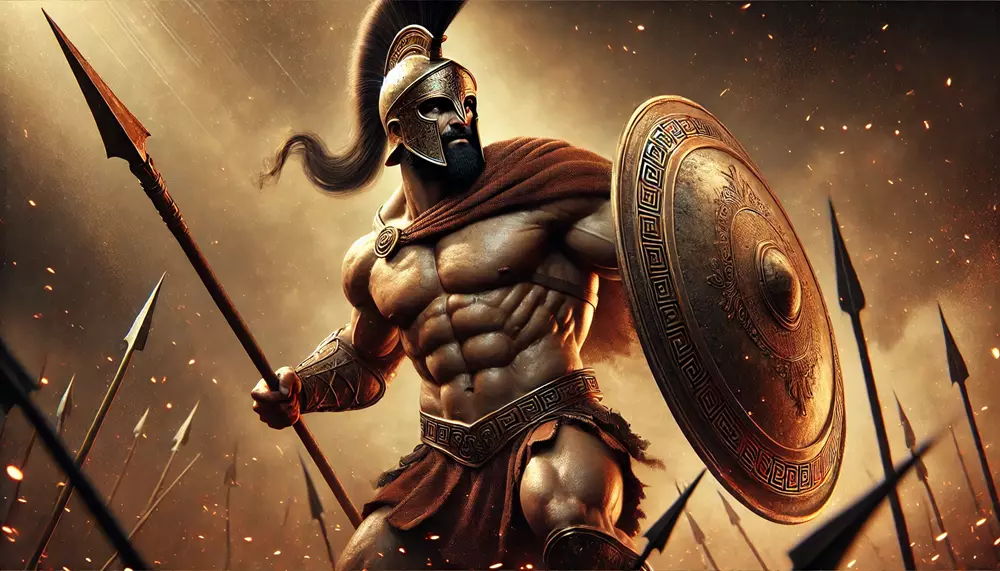
The hero of Homer’s Iliad, was nearly invincible except for his infamous heel. Known for his unmatched skills in battle, he was a key warrior in the Trojan War.
Despite his strength, Achilles was also known for his pride and rage, which sometimes led to tragic consequences. His story emphasizes the complex nature of heroism, where strength is accompanied by deep, often fatal, flaws.
Jason
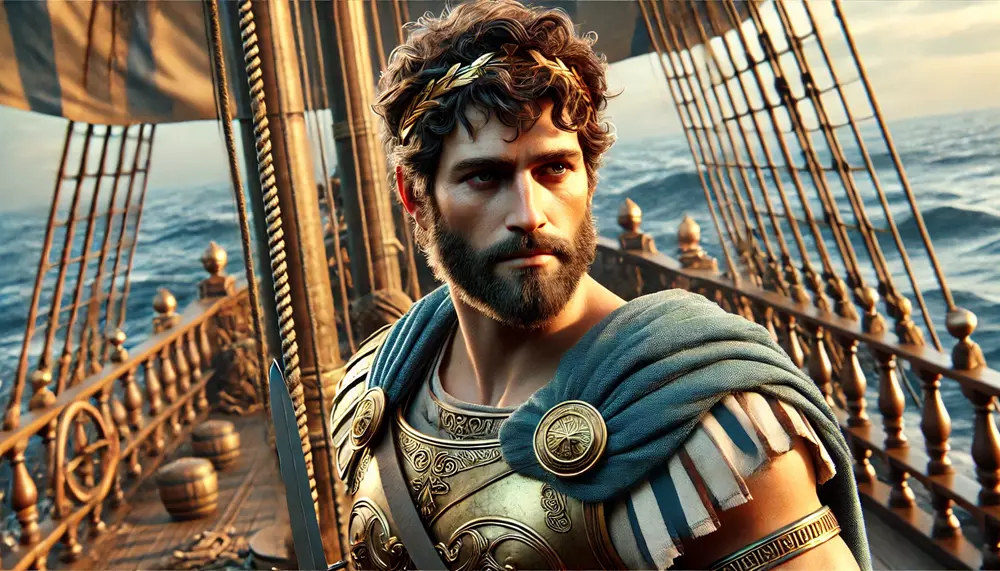
Best known for leading the Argonauts in their quest for the Golden Fleece. With the help of the sorceress Medea, Jason faced challenges like clashing rocks and fire-breathing bulls.
His journey symbolizes determination and the spirit of exploration, though his betrayal of Medea later reveals the darker side of ambition.
Odysseus

The clever king of Ithaca, is celebrated for his intelligence and cunning, especially during his Odyssey home after the Trojan War. He faced numerous trials, from escaping the Cyclops to resisting the Sirens’ song.
Odysseus’s journey is a story of resilience and wit, showing the importance of perseverance even when faced with immense hardship.
Bellerophon
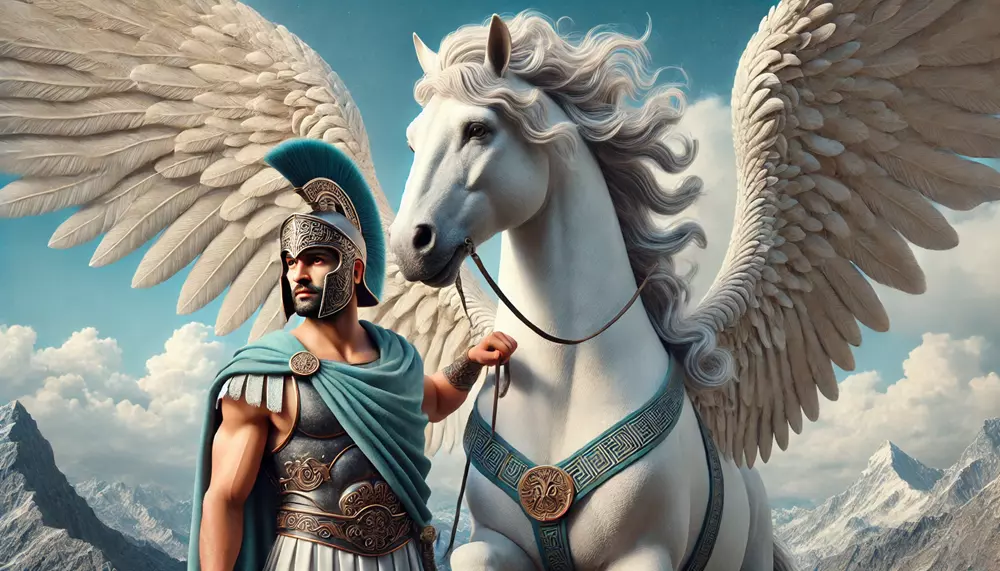
The hero who tamed Pegasus, the winged horse, and defeated the Chimera, a fire-breathing monster with the body parts of a lion, goat, and snake. Though celebrated, Bellerophon’s ambition led him to attempt to reach Mount Olympus, an act of hubris that resulted in his downfall, highlighting the Greek theme of respecting divine boundaries.
Atalanta
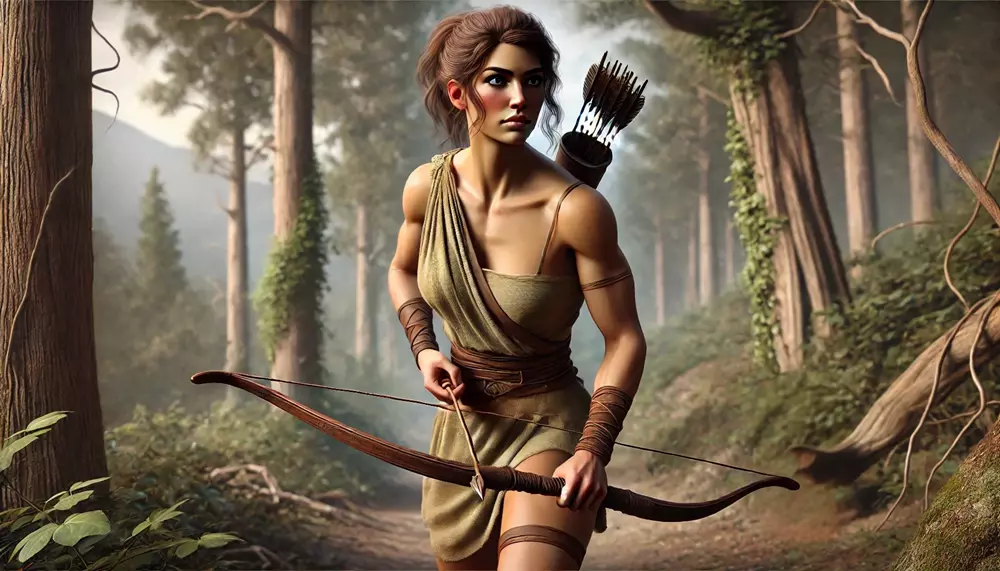
a swift huntress raised by bears, was known for her incredible speed and skill in hunting. She played a key role in slaying the Calydonian Boar, proving her strength among her male counterparts.
Atalanta’s tale emphasizes themes of independence and courage, standing out as one of the few celebrated female heroes in Greek mythology.
“Sing, Muse, of the man of many ways, who was driven far journeys, after he had sacked Troy’s sacred citadel.” – Homer, The Odyssey
Monsters and Beasts
Greek mythology is home to some of the most terrifying and awe-inspiring beasts, each representing untamed forces that challenge heroes and mortals alike.
Hydra
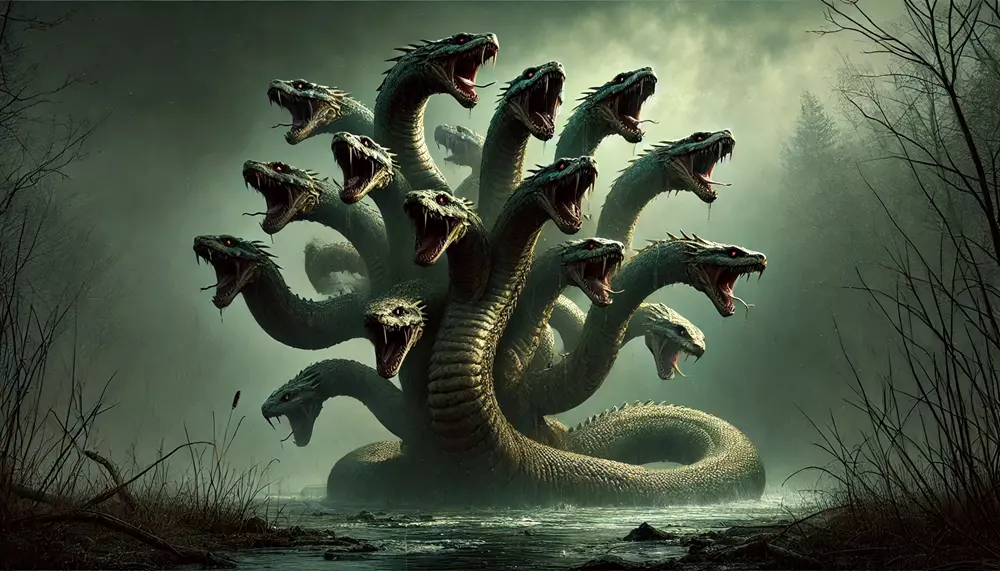
a multi-headed serpent that grew two heads for each one cut off. Heracles faced this creature as one of his Twelve Labors, ultimately defeating it by cauterizing the stumps to prevent regeneration.
The Hydra symbolizes the relentless nature of challenges, where solutions often lead to new obstacles.
Minotaur
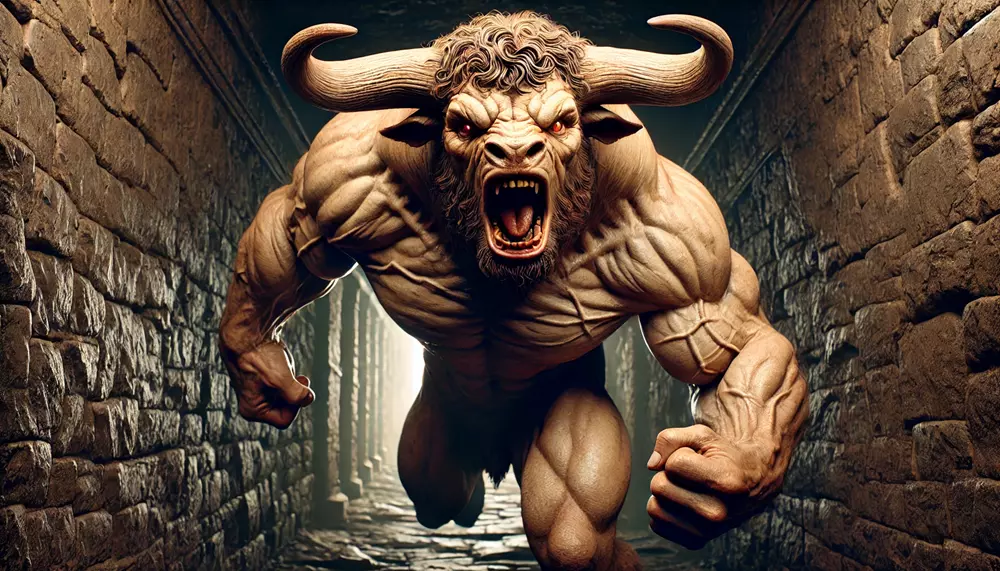
a creature with the body of a man and the head of a bull, lurked in the labyrinth of Crete. Born from the union of Queen Pasiphae and a divine bull, the Minotaur was a punishment to King Minos for defying the gods.
Theseus famously slayed the Minotaur with the help of Ariadne’s thread, a tale that reflects themes of cunning and bravery in the face of monstrous adversity.
Medusa
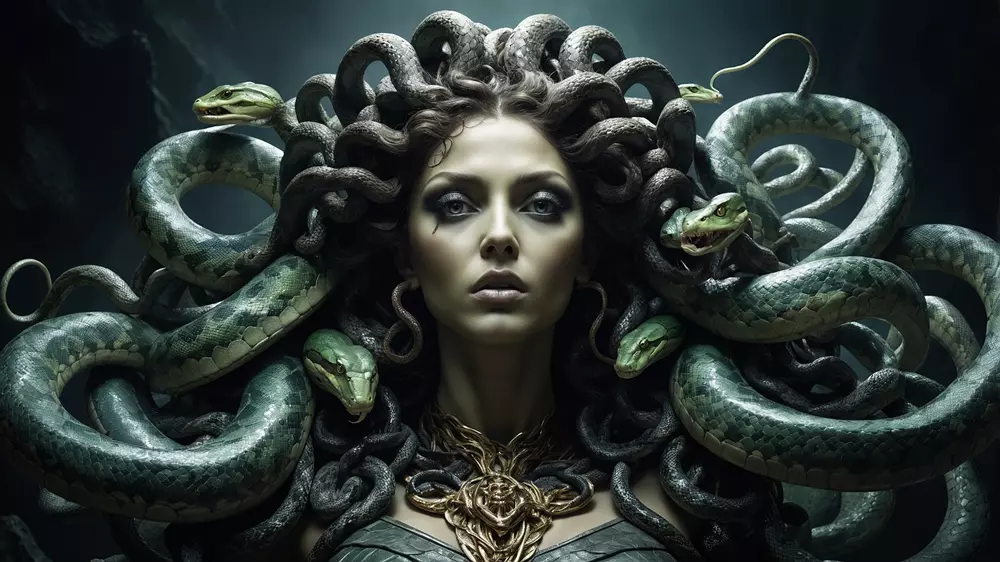
one of the three Gorgons, had snakes for hair and a gaze that could turn anyone to stone. Once a beautiful maiden, she was cursed by Athena after an affair with Poseidon.
Perseus, equipped with divine tools, beheaded Medusa and used her head as a powerful weapon. Medusa’s story highlights themes of transformation, beauty, and danger, showing the consequences of divine wrath.
Cerberus
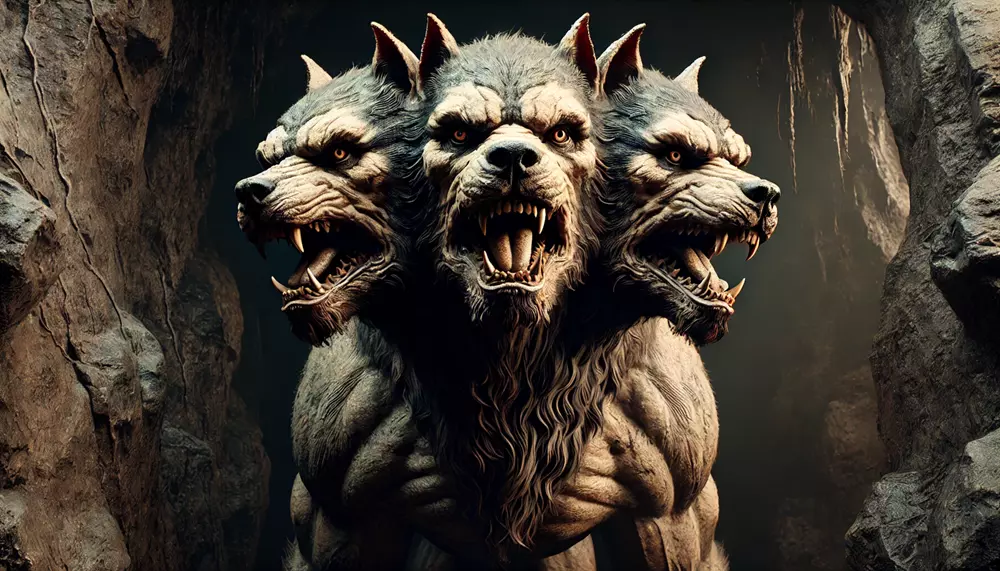
A three-headed dog guarded the entrance to the underworld, preventing the dead from escaping and the living from entering. Loyal to Hades, Cerberus was a formidable creature whom only a few heroes, like Heracles and Orpheus, managed to confront or outwit.
Cerberus represents the boundary between life and death, a reminder of the natural order.
Chimera

a monstrous hybrid with the body of a lion, a goat’s head on its back, and a serpent’s tail. This fire-breathing beast terrorized the land until Bellerophon, riding Pegasus, defeated it.
The Chimera’s strange form and deadly nature symbolize the unnatural and the chaotic, making it a fitting adversary for a heroic quest.
“A monster with a lion’s front and serpent behind, a goat in the middle, and snorting out the breath of terrible flame.” (Homer, The Iliad)
Cyclops
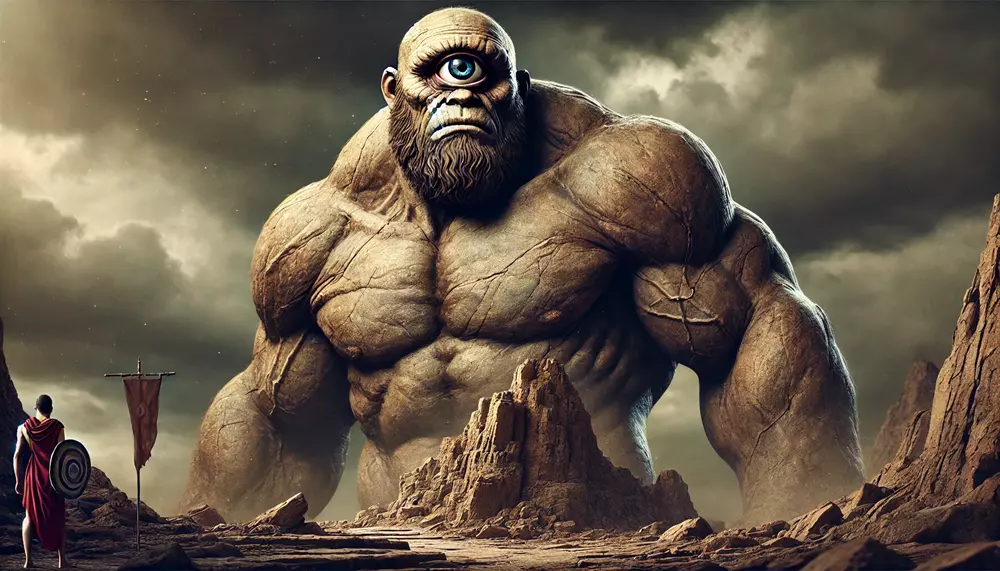
one-eyed giants known for their brute strength. Polyphemus, one of the most famous Cyclopes, was outwitted by Odysseus, who blinded him to escape captivity.
The Cyclopes reflect raw, unrestrained power and the importance of cunning over physical strength.
Scylla and Charybdis

two sea monsters that represent unavoidable danger. Scylla, a six-headed monster, devoured sailors, while Charybdis created deadly whirlpools.
Odysseus had to navigate between these threats, choosing which peril to face. These creatures illustrate the inevitability of risk and the difficult choices heroes must make.
Pegasus

a mystical winged horse associated with freedom and the divine. Bellerophon tamed Pegasus, who later became a symbol of poetic inspiration and the human desire to soar beyond limits.
Pegasus embodies the potential for transcendence and the drive to achieve the extraordinary.
The Underworld and Afterlife Beliefs
In Greek mythology, the Underworld is more than a place of punishment; it’s where souls journey after death, ruled by Hades and guarded by the fearsome Cerberus. Unlike the fiery infernos depicted in other mythologies, the Greek Underworld is often a shadowy, somber realm, neither hellish nor paradisiacal.
Hades, the god of the Underworld, oversees this domain with fairness, treating all souls equally regardless of their mortal actions.
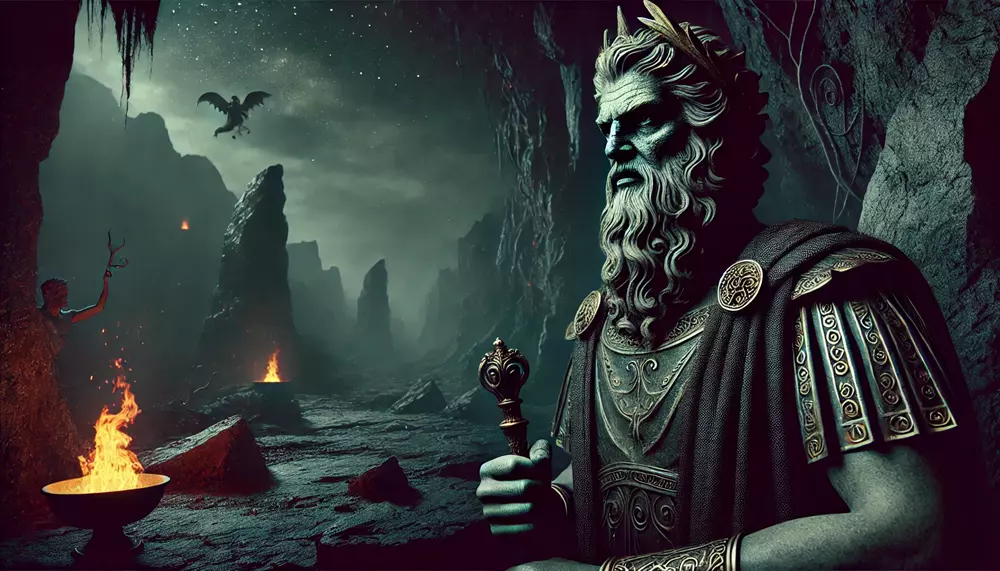
The Underworld is divided into sections that reflect the deeds of the deceased. Elysium, or the Elysian Fields, is reserved for the heroic or virtuous, offering a paradise for those who lived with honor.
It’s where exceptional mortals like Achilles find eternal peace. Asphodel Meadows is a neutral zone where most souls wander in quiet reflection, while Tartarus is a place of torment for those who defied the gods, like the titan Cronus.
“For it is not possible to escape death, and what the Fates have spun for you.” – Homer, The Iliad
Greek beliefs about the afterlife underscore the importance of fate and justice, values deeply ingrained in their culture. Souls judged by Minos, Rhadamanthus, and Aeacus are assigned to their afterlife realm, emphasizing accountability even beyond death.
Zeus compared to Athena, Poseidon, and Hades
| Aspect | Zeus | Athena | Poseidon | Hades |
|---|---|---|---|---|
| Domain | Zeus rules the sky and thunder, overseeing the other gods and mortals. | Athena governs wisdom and warfare, embodying strategic thinking and intelligence. | Poseidon controls the seas and earthquakes, known for his temperamental nature. | Hades presides over the underworld, managing the realm of the dead. |
| Symbol | His symbol is the lightning bolt, representing power and authority over nature. | The owl symbolizes Athena, reflecting her association with wisdom and knowledge. | Poseidon's trident signifies his dominion over the ocean and its creatures. | Hades is often depicted with a bident, symbolizing his control over the underworld. |
| Personality | Zeus is often seen as authoritative and sometimes vengeful, demanding respect. | Athena is characterized as wise, just, and a protector of heroes. | Poseidon is known for his unpredictable temperament and fierce nature. | Hades is portrayed as stern but fair, ruling his domain with order. |
| Powers | Zeus wields lightning and storms, showcasing his immense power over the skies. | Athena possesses skills in strategy and combat, aiding heroes in their quests. | Poseidon can create storms and earthquakes, demonstrating his control over nature. | Hades has the power to control the dead and influence the afterlife. |
| Mythical Stories | Zeus features prominently in myths like the Titanomachy and the Trojan War. | Athena's stories include her birth from Zeus and her role in the Iliad. | Poseidon is central to myths involving the creation of horses and the Trojan War. | Hades appears in myths such as the abduction of Persephone and the underworld. |
| Worship Practices | Zeus was worshipped through grand temples and festivals like the Olympics. | Athena was honored with the Panathenaea, celebrating her wisdom and courage. | Poseidon was revered in coastal cities, with rituals to appease his temper. | Hades had fewer temples, as worship was often private and focused on the dead. |
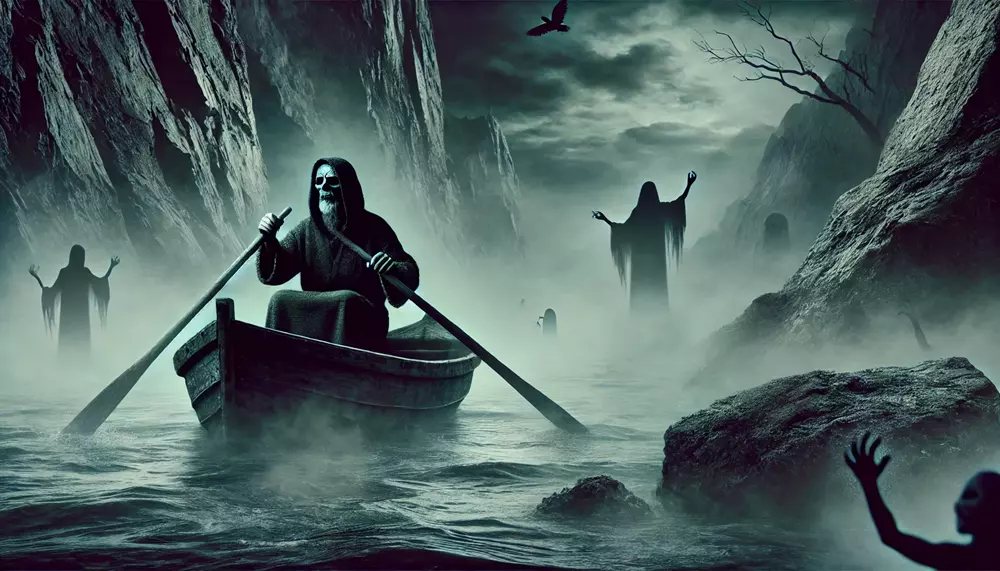
The journey to the Underworld involves crossing the River Styx, with the boatman Charon ferrying souls for a fee. This ritual highlights the Greeks’ respect for burial rites, as those not properly buried were doomed to wander the shores of Styx, denied rest.
The Greek Underworld serves as a reminder of life’s transience and the moral consequences of one’s actions. By structuring the afterlife to reflect virtues and vices, Greek mythology presents death not as an end but as a continuation of justice, fate, and the natural order.
Moral and Ethical Lessons
Greek mythology doesn’t just tell stories of gods and heroes; it serves as a guide to ethical and moral conduct. Many myths emphasize hubris (excessive pride) as a fatal flaw, warning against the dangers of overstepping human limits.
Figures like Icarus, who flew too close to the sun despite his father’s warnings, embody the consequences of disregarding boundaries.
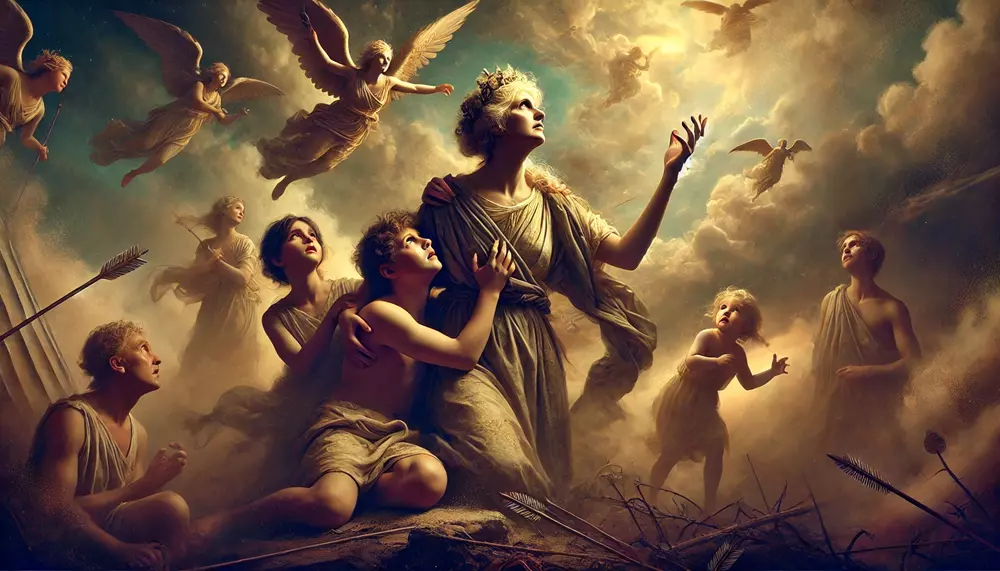
Another common lesson is the importance of loyalty and respect for the gods. Niobe, who boasted of her children’s superiority to Leto’s, lost everything due to her arrogance.
This punishment serves as a reminder to honor those more powerful and respect divine authority.
“Pride goes before destruction, and a haughty spirit before a fall.” – Proverbs 16:18 (parallel to Greek themes)
Greek mythology also values resilience and cleverness. Heroes like Odysseus demonstrate that intelligence and resourcefulness often outweigh brute strength.
Through these stories, Greek myths reflect a code of behavior, illustrating that while ambition and pride are human, balance and humility are essential virtues.
Greek and Roman Mythology – A Comparative View
Greek mythology laid the foundation for many myths adopted and adapted by the Romans. When the Romans encountered Greek culture, they incorporated these stories into their own, modifying the names and personalities of the gods to fit Roman ideals.
Zeus became Jupiter, retaining his status as king of the gods, but in Roman culture, he took on a more authoritative, statesman-like persona, reflecting Roman values of duty and governance over Greek ideals of power and passion.

Hera became Juno, honored as a protector of marriage but also seen as a powerful matron of the Roman state. Similarly, Ares, the Greek god of war known for his chaotic, violent nature, was transformed into Mars, a figure of military honor and discipline, mirroring the Romans’ structured approach to warfare.

Another example is Hermes, the Greek messenger god, who became Mercury in Roman mythology. Mercury retained Hermes’ swift nature and role as a communicator but also took on additional responsibilities, becoming a patron of commerce, aligning with Rome’s focus on trade and expansion.
“The gods of Rome and Greece… alike yet distinct.” – Ovid, Metamorphoses
These adaptations allowed Roman society to build its own mythology while maintaining connections to Greek ideals. The myths of Hercules (Greek Heracles) and Odysseus (Roman Ulysses) also became popular, showcasing heroism, resilience, and wit.
By blending Greek myth with their values, the Romans crafted a mythology that resonated with their empire’s principles and gave ancient stories new life.
Greek Mythology in Modern Greece
In modern Greece, ancient mythology is more than just history, it’s a living part of the cultural identity. From art and literature to festivals and tourism, Greek mythology continues to shape Greece’s national pride and global image.
Mythological themes are prominent in Greek art, where gods, heroes, and legendary creatures appear in sculptures, murals, and public installations that celebrate Greece’s ancient heritage.
Greek mythology also plays a significant role in the tourism industry, attracting millions of visitors each year. Sites like the Temple of Zeus in Olympia and the Oracle of Delphi offer tourists a tangible connection to the ancient world, while myth-themed festivals celebrate figures like Dionysus with music, dance, and theater.
“The gods live on in the stones of Greece.” – Unknown Greek Proverb
In schools, mythology is integrated into history and literature, ensuring that each new generation learns these foundational stories. Whether through festivals, education, or tourism, Greek mythology in modern Greece serves as a bridge to the past, keeping the legends of the gods and heroes alive in today’s world.
Greek Mythology in Pop Culture
Greek mythology has made a lasting impact on modern pop culture, inspiring books, movies, and video games worldwide. Here are ten specific examples that highlight the influence of Greek myths:
Percy Jackson & the Olympians (Book Series)
Rick Riordan’s popular book series reimagines Greek gods in a modern setting, with teenagers discovering they are demigods.
It introduces younger generations to mythology through action-packed adventures.
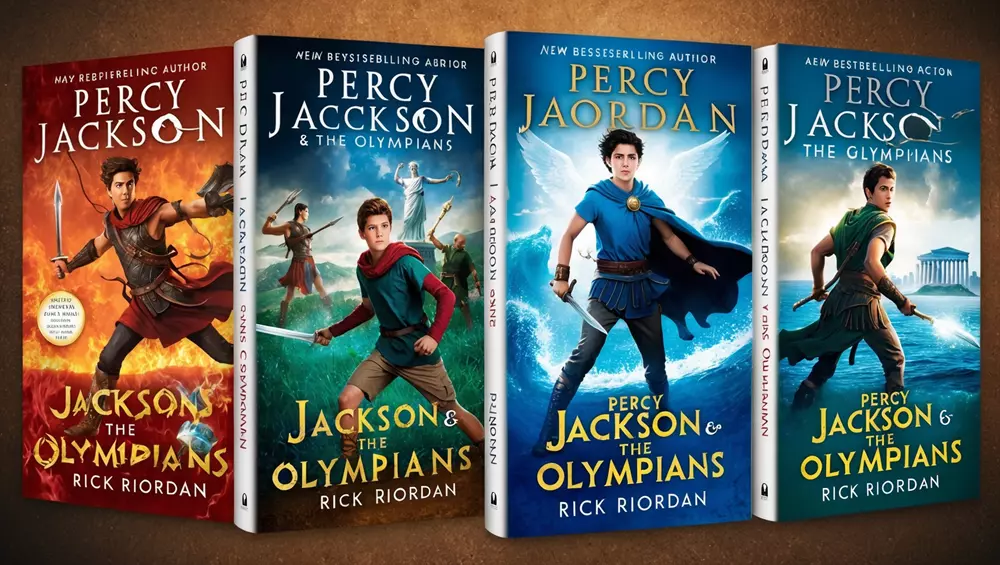
Hercules (Disney Film)
Disney’s animated movie provides a humorous, family-friendly take on the trials of Heracles (Hercules), simplifying mythological themes for a younger audience.
Troy (Film)
This film adaptation of Homer’s Iliad brings to life the epic conflict between the Greeks and Trojans, showcasing key figures like Achilles, Hector, and Paris.
God of War (Video Game Series)
This game franchise centers on Kratos, a Spartan warrior battling Greek gods and mythical creatures.
The series dives into themes of vengeance, fate, and redemption within a mythological setting.

Clash of the Titans (Film Series)
This movie franchise is based on the tale of Perseus and includes iconic creatures like Medusa and the Kraken.
It brings Greek mythological tales to life with high-stakes battles.
The Iliad and The Odyssey (Graphic Novels)
Modern graphic novels retell Homer’s epics with vivid illustrations, introducing classic tales like the Trojan War and Odysseus’s journey to new audiences.
Assassin’s Creed: Odyssey (Video Game)
Set in ancient Greece, this game allows players to interact with gods, oracles, and mythical creatures, blending history with mythology in an immersive experience.
Wonder Woman (DC Comics and Films)
Wonder Woman, an Amazon warrior, has origins in Greek mythology. The Amazons, inspired by ancient myths, showcase themes of strength, honor, and divine heritage.

The Song of Achilles (Novel)
Madeline Miller’s novel retells the story of Achilles and Patroclus, bringing depth and emotional complexity to figures from the Iliad and exploring themes of love and destiny.
Hadestown (Musical)
This Broadway hit reimagines the story of Orpheus and Eurydice in a unique, folk-inspired setting. It merges myth with modern music, making ancient tales accessible and emotionally resonant.
Sources
Wikipedia – Greek Mythology
A comprehensive overview of Greek gods, heroes, and mythological themes.
History.com – Greek Mythology
Covers Greek gods, goddesses, and legendary stories, with sections on monsters, heroes, and myths.
Britannica – Greek Mythology
Provides historical context and explains the impact of mythology on ancient Greek culture.
Mythopedia – Greek Mythology
Offers detailed descriptions of Greek gods, heroes, and creatures, focusing on storytelling.
World History Encyclopedia – Greek Mythology
Examines Greek mythology’s themes, gods, and legendary creatures with historical insights.

